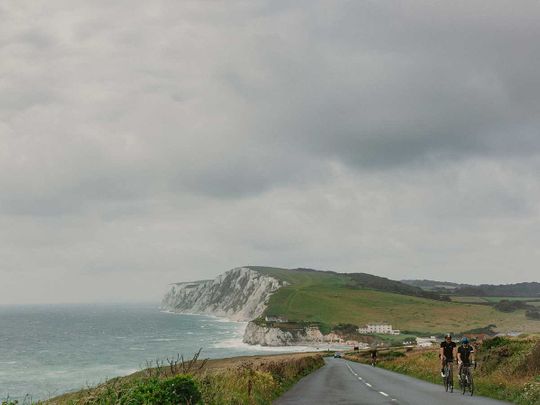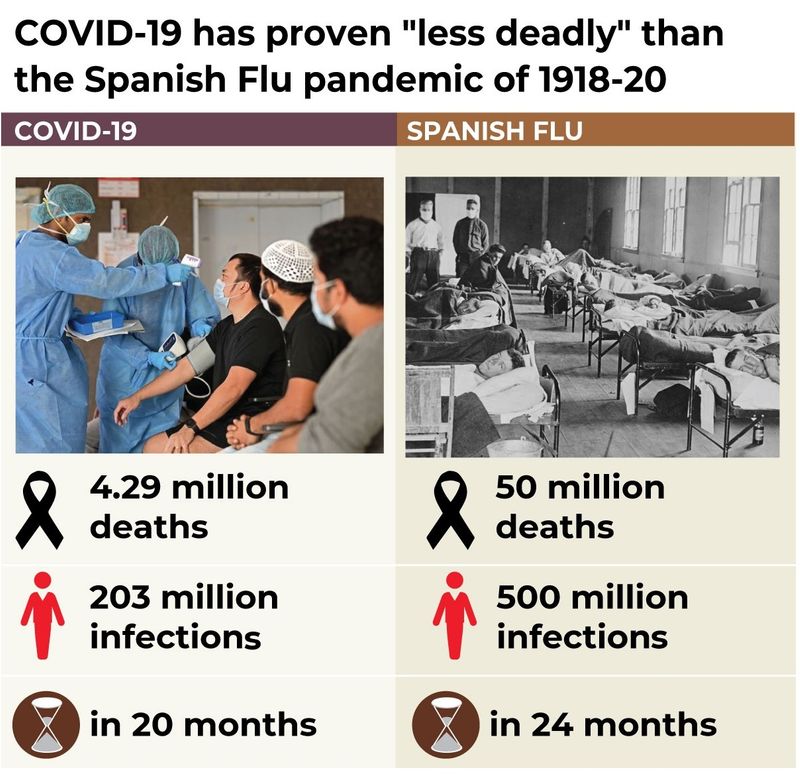
As the fourth wave of the coronavirus swells across the United States, driven by the highly contagious delta variant, travelers who had booked late summer travel are now facing a familiar quandary: Should they once again cancel their plans?
For many - among them, those who are vaccinated, headed to high-risk areas and concerned about breakthrough infections - the answer is yes. New data shows that although vaccines provide strong protection against severe illness and hospitalisation, even vaccinated people are at risk of contracting the virus and spreading it, and getting sick themselves.
But while the slowdown is puncturing hopes of a rebound after the travel industry's worst year in recent history, the dip in bookings is - for now - relatively small, according to travel advisers and hospitality companies. The hope is that the current situation will be more of a speed bump than a stoplight.
TripActions, a travel management company, reports that while new domestic bookings remain strong, cancellations for same-week travel have been steady at 26% for the past month, an uptick from an 18% average over the summer, before the delta variant pushed virus cases up in every state. The airfare app Hopper is seeing a surge in demand for flexible bookings, with a 33% increase since early July in tickets that can be canceled for any reason. The company predicts domestic airfare prices will drop 10% in the coming weeks, a forecast supported by data from the Transportation Security Administration, which has seen the number of passengers it screens daily dip by about 30,000 since July.
Dolores Halls, a human relations coordinator and plus-size fashion blogger in Chicago, has adjusted three upcoming trips because of fears about the delta variant. She nixed a planned November vacation in Italy with her husband; has put an October girls' trip to New Orleans on hold; and switched a September visit to Florida, which leads the nation in new coronavirus cases, to California, where she will land in Los Angeles and take a ferry to Catalina Island in hopes of avoiding crowds.
"COVID has really kicked us in the butt," said Halls, 28. Early in the pandemic, her mother was hospitalised with COVID-19 pneumonia. And despite now being vaccinated, "I'm definitely scared of breakthrough infections," she said. "I'm also a plus-size girl, and I see the stories and statistics where something like that could impact how COVID affects you."
In a recent survey by Scott's Cheap Flights, a travel site that alerts subscribers to airfare deals, 74% of members said the delta variant had impacted their travel plans, with 35% not booking any new trips right now and 24% choosing to book only domestic travel.
"Of those who are booking new international trips, the vast majority are booking for 2022," said Andrew Hickey, senior public relations manager for Scott's Cheap Flights. "People are also determining where they'll go based on COVID."
Just three weeks ago, Hickey pulled the plug on a November trip to Portugal, deciding the delta variant made it unsafe to travel internationally as a family. He had booked tickets to Lisbon for himself, his wife and their two children, 8 and 11, in April. "We felt so confident at the time," said Hickey, who is vaccinated. "I now have over $1,000 in travel credits to use over the next two years, and some of that credit was from a trip we had canceled in 2020."
Although hospital intensive care units are once again buckling and death counts are already surpassing 2020 numbers, public officials are hesitant to bring back lockdowns. The result is haphazard restrictions that vary from city to city: Chicago on Tuesday issued an indoor mask mandate, joining Los Angeles, San Francisco and Washington, DC; New York City will require proof of vaccination for indoor dining; while in Las Vegas, event organizers are excused from the state's indoor masking requirement if they can prove all attendees are fully vaccinated.
But with sporting events forging ahead, restaurants continuing to seat diners indoors and out, and music festivals, like the recent Lollapalooza in Chicago, deciding the shows will go on, the decision of whether to travel is now a personal one.
As a result, reactions in the face of the delta variant are varied. Zeta Global, a marketing technology company that has been tracking US travel behavior, reports an inverse trend based on vaccination status: Hotel stays in states with high vaccination rates have dropped in recent months, and travel to hot spots like Florida has decreased among those who are inoculated against COVID-19 but has increased among those who are not.

Airlines lower profit expectations
Southwest and Frontier Airlines, meanwhile, have lowered their profit expectations this quarter as demand for flights diminishes. Many air carriers were banking on increased business travel this fall, which was only just beginning to rebound. But with companies, including Facebook and Coca-Cola, rolling back their return-to-office plans in the face of the variant, there is fear that business travel will return to a full-on stall.
"There are two distinct consumer behaviors that we're observing. One is if you're making a decision with your own dollars, and one is if you're making a decision with your company's dollars," said Jan Freitag, senior vice president of lodging insights for STR, a hospitality analytics company.
Ron Bension, president and CEO of ASM Global, the world's largest event management company, said that since conventions and large-scale business events have such a long lead time, delta simply extended the status quo created in March 2020. "Most everything had already been canceled. What we're seeing is not a lot of rebooking yet," he said.
For travel-starved Americans, the delta variant has brought the return of a practice well-honed by the pandemic: waiting.
"This is a marathon, not a sprint," said Ravi Starzl, an epidemics expert and CEO of BioPlx, an advanced microbiomics company. "As a country, we wanted to tell ourselves that getting back to normal was a possibility. But the virus had other plans."








